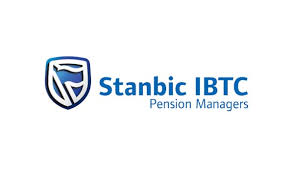by NIyi JACOBS
As Access Holdings consolidates its pension business with a series of bold acquisitions—culminating in the ₦152 billion purchase of ARM Pension Managers—Nigeria’s pension industry is witnessing a fierce power shift. Yet, amid the buzz, market leader Stanbic IBTC Pension Managers remains unfazed, reporting strong earnings and reaffirming its hold on the top spot.
In the first quarter of 2025, Stanbic IBTC Pension Managers posted a profit of ₦8.72 billion and total income of ₦21 billion, comfortably ahead of Access ARM Pensions’ ₦6 billion profit and ₦10 billion income over the same period. The numbers underscore Stanbic IBTC’s resilience in an industry suddenly teeming with consolidation moves and aggressive expansion.
With over ₦4 trillion in assets under management and more than two million Retirement Savings Accounts (RSAs), Stanbic IBTC continues to operate from a position of strength. Its growth trajectory is not built on acquisitions, but on steady innovation, solid returns, and long-term trust cultivated across two decades of regulated pension management.
Olumide Oyetan, CEO of Stanbic IBTC Pension Managers, is not perturbed by Access Holdings’ dramatic market moves. “We welcome healthy competition—it keeps the market sharp,” he said. “But we are not in a race for headlines. Our focus is on delivering long-term value and a world-class retirement experience for our clients.”
While Access Holdings is pushing hard—having already merged Sigma, First Guarantee, and now ARM Pensions into a single entity—Stanbic IBTC has doubled down on innovation. It launched Nigeria’s first robo-advisory pension platform in 2024 and ramped up digital onboarding, with over 55 percent of customer transactions now taking place online. The firm’s mobile app adoption grew by 37 percent year-on-year, cementing its lead among younger, tech-savvy contributors.
Still, the competition is no longer a distant shadow. With Access ARM Pensions now managing ₦3.5 trillion in assets and signaling plans to aggressively tap into Nigeria’s informal sector, a two-horse race is clearly emerging. Dave Uduanu, CEO of Access ARM Pensions, has projected significant growth by year-end, promising the market a “fully integrated post-merger performance” in 2025.
But analysts remain cautious about Access’s breakneck pace. While the acquisition of ARM Pensions gives Access ARM instant scale, industry insiders warn of the risks associated with rapid consolidation—ranging from integration hiccups to client attrition. “Access has bought scale. Stanbic has built trust,” said Ijeoma Okafor, a pension consultant based in Lagos. “And trust is what matters most in pensions, where clients think in decades, not quarters.”
Stanbic’s measured approach has won it praise from regulators and long-term investors alike. The company’s RSA Fund II—Nigeria’s largest pension fund—returned over 12 percent in 2024, outperforming both inflation and the Nigerian Stock Exchange’s Pension Index. The fund’s risk profile remains conservative, but its yield is consistent, drawing praise from institutions and high-net-worth clients.
Beyond the numbers, Stanbic IBTC is also betting on retention and service quality to maintain its edge. Nationwide pension clinics, real-time digital support, and enhanced client advisory are just a few of the tools in its arsenal. Its ESG-compliant and Sharia-aligned investment portfolios are also gaining traction among contributors seeking ethical and diversified returns.
While Access ARM’s new position as a strong number two is undeniable, Stanbic’s industry dominance remains intact—for now. Unlike Access, whose recent moves have been driven by mergers and acquisitions, Stanbic IBTC is playing a longer game rooted in consistency, risk management, and policy alignment.
Its institutional memory is another asset. Leadership continuity, minimal executive turnover, and long-standing compliance with PenCom’s evolving guidelines give Stanbic IBTC Pension Managers a sense of stability and maturity, attributes that clients and regulators value in equal measure.
Still, there’s no doubt that the Nigerian pension market is changing rapidly. The National Pension Commission is expected to release new rules governing micro-pensions, digital onboarding, and fund diversification in the second half of 2025. With pension assets projected to exceed ₦30 trillion by 2026, the stakes are rising for all players.
Observers say this growing rivalry between Stanbic and Access is ultimately good for the industry. It could catalyze better innovation, pricing, and services—offering savers more value and transparency. “It’s less about a war and more about maturity,” noted Tunde Falana, an investment analyst at Afrinvest. “The contributors will be the biggest winners.”
But as far as 2025 is concerned, the message from Stanbic IBTC is clear: leadership is earned—not acquired.














